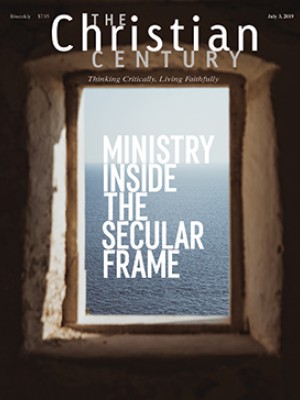30 years after Tiananmen Square, China still restricting freedoms
Yan Xiong, who was a student leader at the 1989 demonstrations, sees Chinese people increasingly becoming disillusioned. Authorities have arrested pastors and placed more than 1 million Uighur Muslims into internment camps.
(The Christian Science Monitor) In June 1989 Yan Xiong, an idealistic Beijing University law student, helped lead demonstrations in Tiananmen Square, watching in awe as the crowds swelled.
“Even after 30 years, the number one impression in my mind is the millions of people,” Xiong said. “The whole society supported that democratic movement.”
Protests calling for free speech, press freedom, and democratic reforms had engulfed Tiananmen Square—the symbolic center of power in the capital, Beijing—then spread to dozens of major cities nationwide. But after several weeks, Communist Party hard-liners prevailed over reformers. Troops with tanks pushed into the capital, opening fire with machine guns on civilians. Estimates of the number killed range from hundreds to several thousand.
Read our latest issue or browse back issues.
“I witnessed a massacre, and I still cannot forget that,” Xiong said. “I even carried a lot of bodies to the hospital.”
After the crackdown, Xiong and other student leaders scattered to other provinces as part of a plan to rekindle the movement outside Beijing. Arrested in northern China, he was jailed for 19 months. Released in 1991, he felt betrayed and empty.
Then a friend from an underground Christian church gave him a book that would change his life: Streams in the Desert, a 1925 devotional by a Christian missionary who had worked in China.
“It made my heart warm,” he recalls.
Escaping China on a fishing vessel to Hong Kong, he gained political asylum in the United States in 1992. There, he joined a church and was baptized, one of several Tiananmen activists drawn to Christianity. He enlisted in the US Army and later graduated from seminary and was commissioned as an army chaplain.
Xiong sees a connection between the disillusionment with communism in China and the rapid growth of Christianity.
“In China, more and more people are disappointed with the reality,” he says. “They need something that can comfort them so they can have hope for the future.”
This trend threatens the party.
“In China when a person says, ‘I am a Christian,’ it means ‘I will follow Jesus, not the party,’” he said.
China has barred Xiong from returning, even to visit his ill mother, who died in 2015.
Xiong worries that the party’s rigid rule will allow problems to build without solutions—threatening the regime with eventual collapse.
The party continues to suppress free expression, including religion. To prevent dissent from minority Muslims known as Uighurs, China has thrown more than 1 million of them into internment camps.
The government has shut down four major underground congregations since September, wrote Open Doors USA, an organization advocating for persecuted Christians. Officials in March reportedly raided a Bible school class at the 1,000-member Shouwang Church, one of the largest in Beijing. Several pastors of underground churches are also being detained or are under house arrest.
Early Rain Covenant Church in Sichuan, which was raided in December, issued a statement in solidarity.
“When we heard that Shouwang Church is being persecuted again,” church leaders wrote, “and other churches facing various pressure from the government, we kneeled down to pray to give thanks and praises to our God, because we are delighted that the bride of Christ is closely following her husband.”
A version of this article appears in the print edition under the title “30 years after Tiananmen Square, China still restricting freedoms.”






